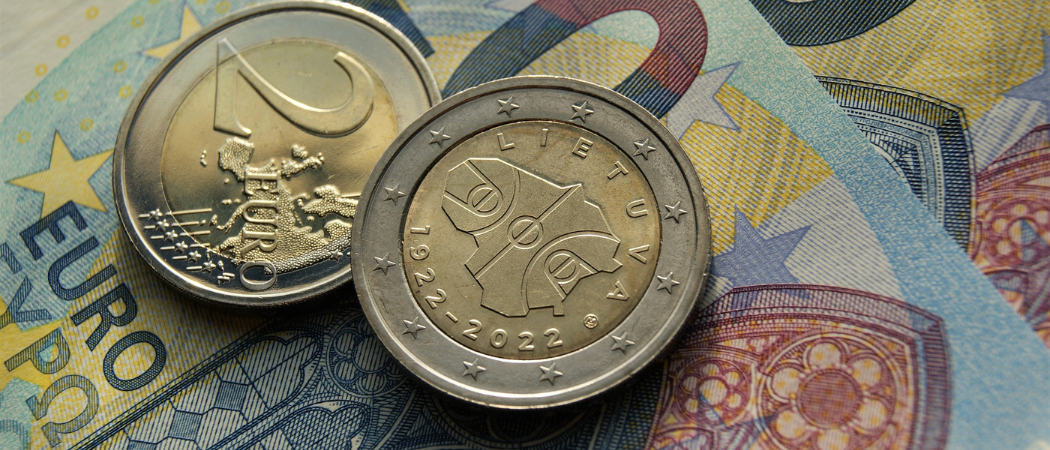A formal system has been put in place that allows regional funds to be transferred to Horizon Europe projects. To date, €18.5M has been made available

Lithuania has moved to take advantage of a mechanism that allows money from EU regional funds to be transferred to Horizon Europe projects, which it hopes will help it win more research grants and inspire more applicants.
Transfer of funds is one of a range of tools put in place by the European Commission to try to create synergies between the European Regional Development Fund (ERDF) and Horizon Europe.
Malta was first to agree with the Commission to use this tool, but Lithuania has been quicker in finalising the steps required to make the transfer possible. Its government has agreed to shift €18.5 million of its ERDF money into a new fund that will back Horizon Europe applicants with excellent proposals but who fail to make the final cut. It can only be used for future calls.
“One of the main reasons why we thought it is worthwhile trying this new type of synergy is to give more Lithuanian participants the experience of managing Horizon Europe projects,” said Brigita Serafinavičiūtė, research attaché at Lithuania’s permanent representation to the EU. “Once you do one [Horizon Europe] project then you change your thinking and realise that you can do it again.”
Lithuanian institutions have so far won just over €70 million in funding from Horizon Europe, which is 0.37% of the total amount handed out via the programme, putting it 22nd out of the EU’s 27 member states.
Serafinavičiūtė said one issue for Lithuanian scientists is oversubscription, with certain Horizon Europe calls attracting too much interest, meaning many applicants miss out. The transfer of funds is one way to resolve this.
A better used tool in the Commissions’ synergies toolkit is the Seal of Excellence. This is awarded to Horizon Europe applicants whose projects are deemed excellent but who don’t get a grant, making it easier for them to get funding through other programmes, for example through the ERDF.
This option has proven very popular and administratively is far easier for countries to put in place. Lithuania decided to take the plunge on the transfer of funds option – bureaucratically far more complicated to establish – because it allows its beneficiaries to get the proper Horizon Europe experience.
The idea to try it out arose in talks with the Commission as part of Lithuania’s involvement in the Enhanced Dialogues initiative in which Commission representatives get together with national ministries to discuss R&D policy and to compare best practices with other member states.
Putting the scheme in place has required extensive negotiations. Firstly, it has to be managed between the Commission’s directorate general (DG) for regions, in charge of the ERDF, and the research DG, in charge of Horizon Europe. On a national level, it has involved three different ministries: the research and education, the ministry of economy and innovation and the finance ministry.
Serafinavičiūtė said it has meant more work for bureaucrats and it is still a learning process. “Always when you do something for the first time there are risks,” she said. While it might not be a “silver bullet” in boosting Lithuania’s Horizon Europe participation rate, it should help.
In its latest move to create synergies between regional funds and Horizon Europe, the Commission last week launched a new network called Rima, to enhance dialogue and coordination between the Commission and member states to ensure synergies across all relevant funding sources.
Limitations
Beyond the complexity of setting up a transfer of funds from ERDF to Horizon Europe, there are other limitations. It is essentially only for grants to individual researchers, so applications involving consortia are off the table.
For this reason, Lithuania has chosen to use the option to support those applying for Marie Skłodowska-Curie Actions grants, European Research Council (ERC) grants and European Innovation Council (EIC) grants.
Of this, €12.5 million in ERDF money to go to EIC grants, including the EIC Accelerator, EIC Transition and EIC Pathfinder calls, with the remaining €6 million for ERC and MSCA applicants.
Ian Gauci Borda, Malta’s national contact point for Widening, ERA, Health, and Research Infrastructures, said while it appears to be useful, transfer of funds seems “difficult to implement”. He would rather see the Seal of Excellence be given a wider scope. Currently, it is only applicable to a handful of funding schemes, such as the EIC Accelerator an ERC proof of concept grants.
Malta has in total proposed €5 million to be transferred from ERDF to Horizon Europe under the initiative, but is still finalising its plan. The transfer of funds is set to happen in the coming months, with €1 million transferred to Horizon Europe every year for the next five years.





 A unique international forum for public research organisations and companies to connect their external engagement with strategic interests around their R&D system.
A unique international forum for public research organisations and companies to connect their external engagement with strategic interests around their R&D system.